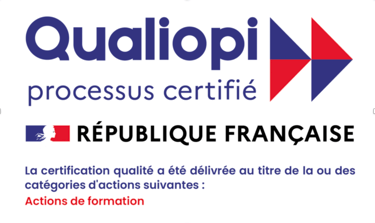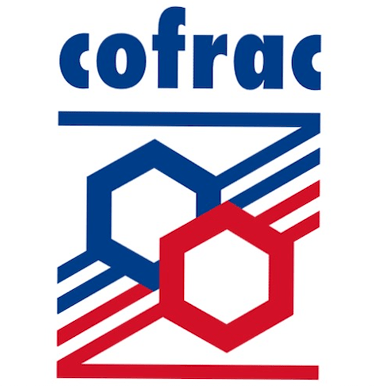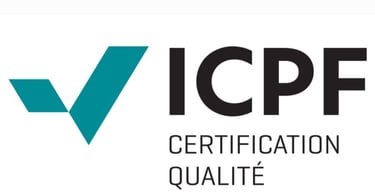FINANCING YOUR TRAINING
Paying in installments is a financing option that allows learners to better manage their budget while accessing quality training. With this payment option, AGUYSE FORMATION offers the option to pay training fees in two, three, or four installments, making learning more accessible. This system is particularly advantageous for those who wish to train without having to pay a large sum all at once. By opting for this solution, participants can focus on their training without worrying about financial constraints. Thus, AGUYSE FORMATION is committed to supporting its learners in their educational journey by offering flexible payment options tailored to their needs. To learn more, do not hesitate to contact AGUYSE FORMATION and discover the different training programs available.
Financial support for training projects is essential to ensuring access to education and professional qualifications. Several organizations play a key role in this area, including France Travail, which helps job seekers train and find work. The Regional Council also contributes to funding, offering assistance tailored to local needs. Local Missions offer specific support to young people seeking career guidance. Furthermore, the Family Allowance Fund (CAF) can intervene in certain cases to alleviate costs. Skills Operators (OPCO) and Training Insurance Funds (FAF) are also involved, facilitating access to professional training for employees and the self-employed. Together, these organizations contribute to improving skills and facilitating integration into the job market.
Utilisation de votre compte personnel de formation (CPF) via : https://www.moncompteformation.gouv.fr/espace-prive/html/#/
ADDITIONAL INFORMATION
ALL THE ANSWERS TO YOUR QUESTIONS ABOUT OUR TRAINING COURSES
How to become a security guard?
To apply for a position as a security guard in a private company, you must first be of legal age, have a clean criminal record, and hold a mandatory professional card. This card is issued by the CNAPS (National Health and Social Security Centre) and is valid for 5 years.
How to become a security guard without a diploma?
Eligible without a diploma, becoming a security guard nevertheless requires you to be of legal age, have a clean criminal record, and hold a mandatory professional card issued by the CNAPS (National Health and Social Security Centre) and valid for 5 years.
How to obtain the professional card?
To obtain the professional card, you must complete the APS (Prevention and Security Officer) training course.
What are the requirements for accessing the training?
To apply for prior authorization, it is essential to have a clean criminal record, with an extract dated within the last three months, translated into French if you are not a French national. You will also need to demonstrate your ability to read and write French, as a test will be administered at the training center. You will need to complete the application form, which you can download from our website. Don't forget to include a pre-registration certificate issued by the training center. Once all these documents are prepared, you will need to send them to the CNAPS by registered mail with acknowledgment of receipt, or you can apply directly online on the CNAPS website.
LIEN SITE:
https://casier-judiciaire.justice.gouv.fr/pages/accueil.xhtml
MINISTERE DE LA JUSTICE FORMULAIRE DE DEMANDE DE CASIER JUDICIAIRE N°3
LIEN SITE:
CNAPS - Formulaire de demande d'autorisation préalable ou provisoire
Correspondance pour le CNAPS
Départements concernés
75 / 77 / 78 / 91 / 92 / 93 / 94 / 95 / 99
Adresse
CNAPS – Délégation territoriale Ile-de-France
CS 70002
93326 AUBERVILLIERS cedex
LIEN SITE:
How long is the APS training?
The APS training lasts 175 hours, Monday to Friday, from 8:30 a.m. to 5:30 p.m., at our premises.
What financing options are available?
Check out the "FINANCING YOUR TRAINING" section on our website.
Are there jobs in the security field?
Yes, private security is a sector that is hiring, and this trend is expected to continue.
Are there career opportunities in the private security field?
Yes, after working as an APS, you can be appointed to station manager. You could also be appointed controller, sector manager, and then director. This is a very possible career path, depending on your dedication and commitment.
Is there a difference between APS and SSIAP ?
Yes, SSIAP, which stands for fire safety and personal assistance service, is a training program for future fire safety officers. The mission is completely different. They are dressed in firefighting gear (F1), generally work in a fire safety headquarters, and often have 12-hour shifts per day. This means they work three shifts per week.
The career path of a fire safety officer depends on the individual officer, unlike an APS officer, whose career progression is based on appointment. After 1,607 hours as an SSIAP1 officer in the last 24 months, the SSIAP1 officer can choose to pursue the SSIAP2 (Team Leader) training. After 3 years as a team leader in the last 36 months, they can choose to pursue the SSIAP3 (Fire Safety Service Manager) training.
Do not hesitate to ask us your questions via : contact@aguyse.com
To apply for prior authorization, you must have a clean criminal record, with an extract less than three months old, translated into French if you are not a French national. You will also need to demonstrate your ability to read and write French, as a test will be administered at the training center. You will need to complete the application form, which you can download from our website. Don't forget to include a pre-registration certificate issued by the training center. Once all these documents are prepared, you must send them to the CNAPS by registered mail with acknowledgment of receipt, or you can apply directly online on the CNAPS website.






© 2025. All rights reserved.
AGUYSE FORMATION
07 Rue de Port Galand 92220 BAGNEUX
contact@aguyse.com
Tél: 00 336 79 28 18 46
SIRET: 942 168 196 00015
NDA : 11 92 28907 92
CODE NAF/APE: 8559 A
Plateforme européenne de règlement en ligne des litiges (RLL)





